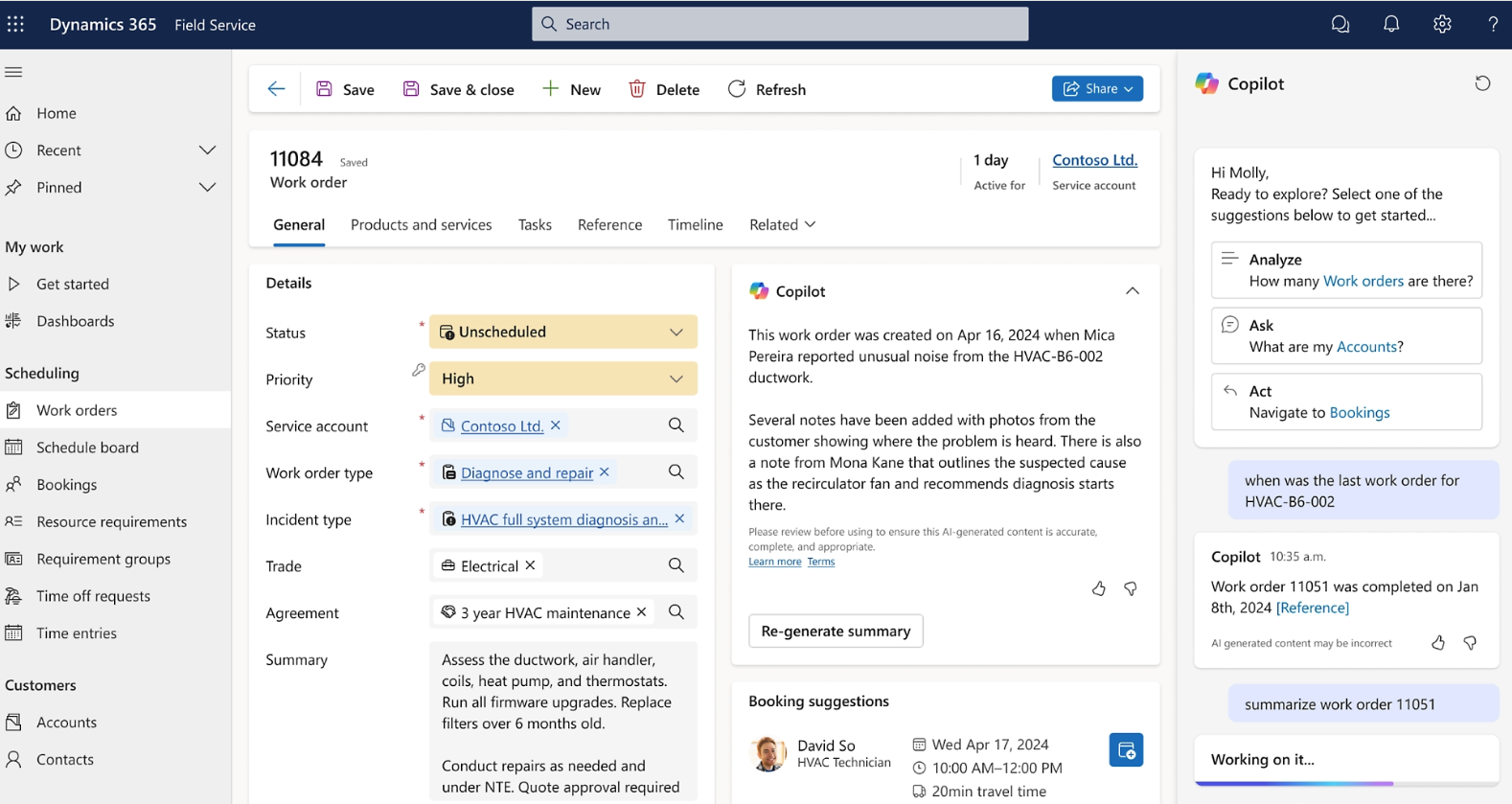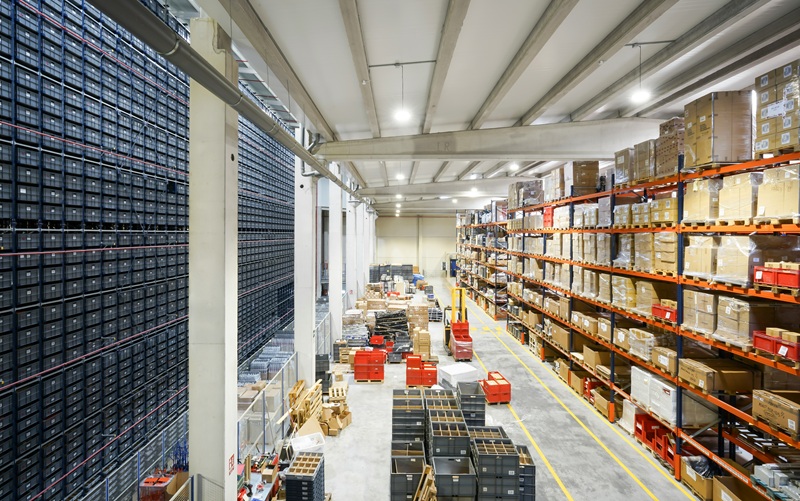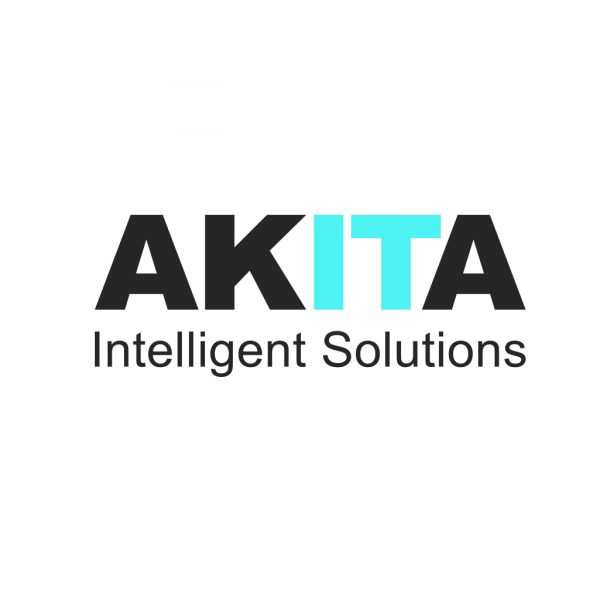Facility management has shifted from routine maintenance to a core business discipline focused on efficiency, sustainability and strategic asset performance.
As organisations grow more data-driven, the role of facility management software becomes central to connecting operations, compliance and cost control.
The modern market offers a wide range of facility management solutions, from lightweight mobile apps to enterprise-grade systems integrating finance, HR and real estate. Below is an overview of the best facility management software available today — each designed to address specific operational challenges and industry needs.
1. Salesforce Field Service
Salesforce Field Service delivers an intelligent, cloud-based platform built for organisations with extensive field teams. Its AI-powered scheduling automatically optimises routes, allocates resources efficiently and ensures technicians arrive on-site prepared.
The system’s mobile functionality stands out, giving engineers and back-office staff real-time visibility of jobs, inventory and customer updates. Seamless integration with Salesforce CRM makes it ideal for service-led businesses focused on customer experience and operational efficiency.
2. Oracle Field Service Cloud
Oracle Field Service Cloud is designed for large, complex service environments. It uses predictive analytics to improve technician utilisation, minimise downtime and forecast maintenance demand.
This facility management software is well-suited to enterprises operating across multiple sites and regions, particularly where logistics and compliance are critical. Its advanced data modelling offers unparalleled control, although implementation and configuration can be resource-intensive, requiring dedicated IT governance.
3. Microsoft Dynamics 365
Microsoft Dynamics 365 delivers an integrated approach to facility and asset management, combining maintenance scheduling, asset tracking, procurement, and financial oversight within one connected ecosystem.
By linking with Microsoft 365, Teams, Power BI and Azure IoT, it enables predictive maintenance, automated workflows and real-time performance analytics. Facilities teams gain complete visibility of operations — from work order assignment to financial impact — all within a unified environment.
Dynamics 365’s modular design allows organisations to start with core facility management functions and expand into areas such as finance, HR and supply chain as requirements grow. Its scalability and connectivity make it suitable for both mid-market and enterprise-level deployment.

4. IFS Cloud / IFS Field Service
IFS Cloud combines enterprise resource planning, service management and asset lifecycle control within one robust platform. It is particularly strong in sectors such as utilities, aviation, energy and manufacturing — industries where asset uptime and regulatory compliance are essential.
Its facility management capabilities include advanced scheduling, maintenance tracking and financial integration. The system’s flexibility allows customisation for highly specific operational requirements, though its depth may exceed the needs of smaller organisations.
5. ServiceMax (by PTC)
ServiceMax specialises in optimising service delivery for companies managing large asset portfolios. Its functionality extends across contract management, SLA tracking, warranty enforcement and predictive maintenance.
This facility management system empowers teams to maximise asset uptime, reduce operational costs and maintain compliance. With strong analytics and reporting, it enables management teams to make evidence-based decisions across multiple service territories.
6. Jobber
Jobber is a user-friendly facility management software solution tailored for small and medium-sized service providers. It handles scheduling, quoting, invoicing and customer communication through an intuitive dashboard and mobile app.
Its simplicity makes it easy to deploy without specialist IT support. Jobber is particularly popular with trades, maintenance contractors and local service businesses looking to digitise operations quickly. While it lacks the enterprise-level capabilities of larger systems, its affordability and ease of use make it a sound choice for SMEs.
7. UpKeep
UpKeep is a modern CMMS (Computerised Maintenance Management System) designed for on-the-go maintenance teams. It offers intuitive work order management, asset tracking and preventive maintenance scheduling accessible via smartphone or tablet.
This cloud-based facility management software allows technicians to log issues instantly, attach photos and monitor asset performance in real time. UpKeep’s simplicity and scalability make it a valuable tool for both small maintenance departments and large facilities seeking operational transparency.
8. MaintainX
MaintainX provides digital work order and process management for multi-site operations. It focuses on collaboration, enabling real-time task updates, audits and progress tracking.
Its user-friendly interface encourages rapid adoption across teams and departments. MaintainX’s reporting features provide visibility of performance metrics, compliance checks and maintenance backlogs — helping organisations achieve operational consistency and accountability.
9. JobLogic
JobLogic is a UK-developed facility management system designed for service and maintenance contractors. It supports the complete service lifecycle — from quoting and scheduling to invoicing, reporting and compliance documentation.
With modules tailored to HVAC, electrical and mechanical services, JobLogic reflects the workflows of UK-based facilities providers. Its ease of use, regulatory alignment and strong local support make it a trusted choice for FM companies managing multiple clients and assets.
10. IBM TRIRIGA and Maximo
IBM TRIRIGA and Maximo are two of the most advanced enterprise-level facility management software platforms available. TRIRIGA focuses on integrated workplace management — including real estate, space utilisation and sustainability initiatives. Maximo excels at asset maintenance, reliability engineering and complex operations management.
Both systems deliver deep functionality suited to global organisations with extensive asset portfolios. Their analytical power supports long-term capital planning, but implementation costs and complexity can make them less accessible for smaller enterprises.
11. ARCHIBUS
ARCHIBUS is a comprehensive platform offering integrated modules for space management, lease administration, capital project planning and sustainability tracking. It has long been a leader in property and facilities management, particularly for large estates and corporate real estate teams.
Its modular approach enables organisations to tailor workflows around strategic priorities, from space utilisation to environmental performance. ARCHIBUS is ideal for organisations seeking detailed reporting and governance over their entire property lifecycle.
12. FMX
FMX offers an intuitive, cloud-based facility management system built for education, healthcare and public sector organisations. Its simple dashboard interface allows users to manage maintenance tasks, track assets and analyse operational data without technical expertise.
FMX’s flexibility and modular pricing model make it particularly appealing for mid-sized organisations modernising their operations. The platform’s cloud infrastructure ensures scalability and ease of access from any location.
Why Microsoft Dynamics 365 Stands Out
While each of these facility management software platforms brings unique strengths, Microsoft Dynamics 365 offers something broader: complete operational unification. It transforms facilities management from a standalone function into a strategic component of business performance.
Dynamics 365 is particularly effective for organisations that:
-
Manage multiple facilities or geographically dispersed assets
-
Require integration between facilities, finance, procurement and HR systems
-
Depend on real-time data and predictive analytics for decision-making
-
Seek scalable cloud infrastructure backed by enterprise-grade security
Through intelligent automation, advanced analytics and seamless integration, Dynamics 365 enables proactive, insight-led facility management. It supports not just maintenance, but measurable performance improvement — positioning it as one of the best facility management software solutions available today.





